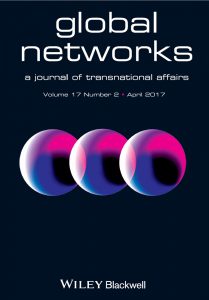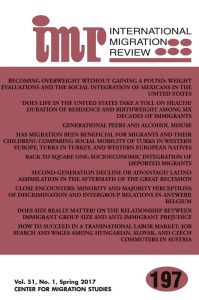Words of the Year: Questions for "Assembled Experts" and Those Whose Expertise Those Assembled Experts Need…
“Oh, I hate that,” my colleague moaned, leaning on the hay- in “hate” with a weary sigh. The that in question was a grammatical construction I had not encountered in my previous TESOL experiences: from as a noun, linked to a country of origin on the other side of a being verb. My from is…Bolivia, El Salvador, Peru, Guatemala. “I don’t know where they get it from,” my colleague continued. “It’s not like they ever heard it from a native speaker.” And there our conversation ended. The native speakers had spoken, and they never did say My from is.
At the time, I was 24 years old. And I was then, and am still, White, middle class, and privileged with access to credentials, to a career I loved and identified with, and to a car to get me to and from it all. I stood in front of students, many of whom were decades my senior, many of whom worked multiple jobs, many of whom rode multiple buses to get to those jobs and even more buses to get to our class. Many of them communicated in multiple languages, including English, which they learned by listening to and engaging with people. What they needed from our class was support in, and practice with, the codes of the written English language.
As semesters went on, I cavalierly kept on asking the question that elicited the my-from-is answer – a question that was all too simple for me: Where are you from? And with the unwitting ease that comes from privilege, I would model the grammatical response: “I am from North Carolina.” But in the rest of my everyday life as a professional, credentialed native speaker, I could be from North Carolina, and all that that entails in terms of accent, word choice, rhythm. Many of my students had lived in the vicinity of our DC metro area school far longer than I had. They had families here—children, grandchildren – friends, co-workers, religious communities. They were of this place and of the places they had been before. And to say “my country is…” necessitated a choice between country of origin and country of residence – a choice that may have felt like a false one. Their “from” was something multiple and hybrid and complex – too personal to fit into a prepositional phrase. Grammar bends for identity.
I’m thinking about this now because this is the time of year when there never seems to be a shortage of declarations about what exactly has defined the past twelve months. For example, news blogs declare whose words count as the year’s “best essays“; linguists and other “assembled experts” hunt for a “word of the year.” 
But whose words make it to these lists? And whose ideas and experiences represented within them? Whose creativity do they recognize, and whose do they pass over? I write these as real questions – questions that I hope others might want to launch a conversation from…




1520-6688/asset/Capture.jpg?v=1&s=b5076c49a7d1c5f1b9cf0dd9cd292394a3be81cc)

Mr. Swain,I am one of the students in Mr. Da7&2oa#8s1m;s Honors English II class reading your book. I have a question concerning the book. How did you go about choosing the countries that were going to be focused on with the various GM products, and why did you choose these specific products to use in this story (rice, bananas, etc.)? The reason for the second part of this question is because I was wondering, were these your favorite foods as a child, or things you hated, or just indifferent? Thank you.